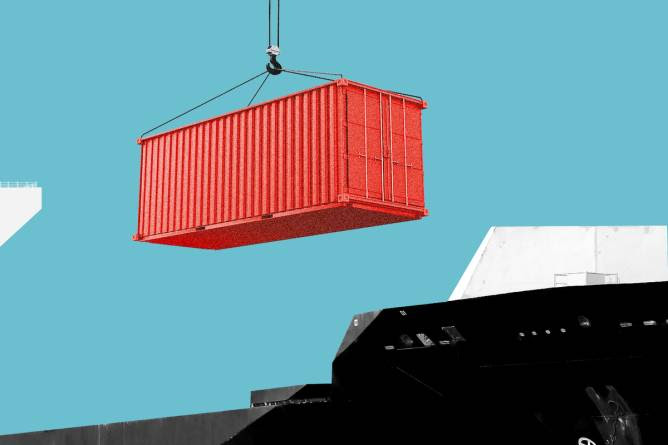Cargo handlers are raising the alarm on a steep drop-off in foreign-made goods entering the US, meaning “out of stock” signs could multiply as soon as next month if President Trump doesn’t change his tariff tune, economists say.
Ground to a halt: Amid falling demand for China’s 145%-tariffed goods, sea-faring cargo shipments from China to the US plummeted 65% in three weeks after tariffs took effect in early April, according to the global logistics company Flexport.
- Ocean freighters called off about 80 trips from China to the US this month. That’s almost 60% more cancellations than during the peak of Covid-19 supply-chain interruption in May 2020.
- The main US entry point for Chinese goods, the Port of Los Angeles, expects one-third fewer arrivals next week compared to the same time last year.
Since China is one of Uncle Sam’s largest providers of everything from kitchen appliances to combs, “The consequence [of tariffs] will be empty shelves in US stores in a few weeks and Covid-like shortages for consumers and for firms using Chinese products,” Apollo Global Management’s chief economist said last week. Lagging sales, layoffs in trucking, logistics, and retail, and a summertime recession are likely to follow, according to Apollo.
It could be too late to save Xmas, but not the economy
To buy time, US companies have been importing more goods from other manufacturing hotbeds, including Vietnam and Cambodia, whose tariffs are on pause. Still, thousands of businesses will likely need to restock by mid-May, when retailers tend to bulk up their inventories ahead of back-to-school and holiday shopping seasons.
Executives from Walmart, Target, and Home Depot told Trump last week that they foresee serious risks of barren shelves and higher prices. It’s unclear when relief might come: Trump’s administration has said there are active talks with China, but China has denied it.
Zoom out: Even if tariffs ease, a sudden resurgence in shipping demand could overwhelm ocean freighters. “Ports are designed for stable flows, not the off-again, on-again volume shifts,” the CEO of shipping company Vespucci Maritime told Bloomberg.—ML
